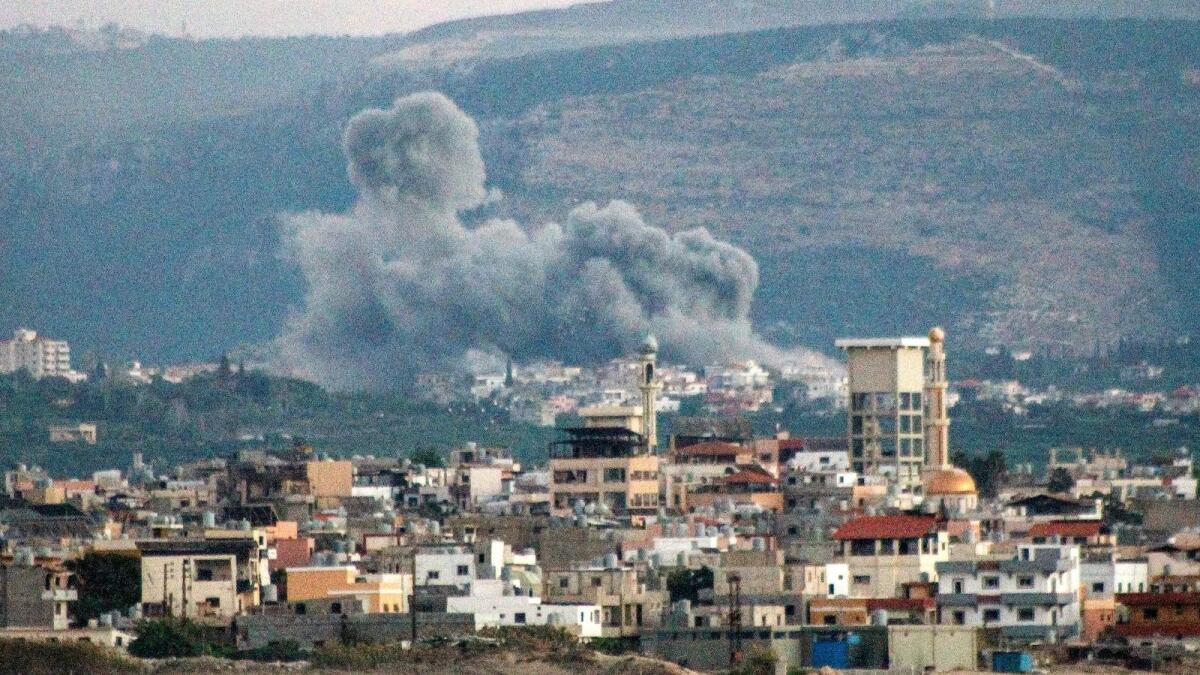The United Arab Emirates expressed its deep concern over the recent developments in Lebanon, emphasizing the need to protect regional stability. The UAE reiterated its support for Lebanon’s unity, national sovereignty, and territorial integrity during this challenging period. In response to the crisis, President Sheikh Mohamed directed the delivery of a $100 million relief package to assist the people of Lebanon in overcoming current challenges. The Ministry of Foreign Affairs emphasized the importance of international efforts to halt the escalation and prevent further loss of life while ensuring the protection of civilians according to international law.
Amid the escalating tensions, Israel has launched ground raids in southern Lebanon, following Hezbollah’s targeting of “enemy soldiers” at the countries’ border. Israeli military operations have included strikes on south Beirut and lethal attacks near the capital Damascus, despite calls for de-escalation from the international community. Israel has declared a military zone along parts of its border with Lebanon and vowed to continue fighting Hezbollah, even after a significant strike that killed Hezbollah chief Hassan Nasrallah. Israeli Defence Minister Yoav Gallant emphasized that the battle is far from over, signaling ongoing military operations in the region.
Israel’s military has intensified its operations, conducting ground raids supported by airstrikes and artillery targeting Hezbollah in villages near the border. The military stated that the targets posed an immediate threat to Israeli communities in northern Israel, justifying the ongoing military actions. The conflict between Israel and Hezbollah has raised concerns about further escalations and the impact on regional stability. International observers are monitoring the situation closely and calling for restraint to prevent further loss of life and ensure the protection of civilians according to international law.
The crisis in Lebanon has sparked international concern, with the United Arab Emirates leading efforts to support the country’s stability and provide relief to the affected population. President Sheikh Mohamed’s directive to deliver a substantial relief package underscores the UAE’s commitment to assisting Lebanon during this challenging period. The Ministry of Foreign Affairs has stressed the importance of collaborative international efforts to mitigate the escalating conflict and prevent further loss of life. As the situation continues to unfold, the need for diplomatic interventions and humanitarian aid remains critical to address the growing humanitarian crisis in Lebanon.
The ongoing conflict between Israel and Hezbollah in Lebanon has raised tensions in the region, with military actions on both sides intensifying. Despite calls for de-escalation, Israel has continued its ground raids targeting Hezbollah in southern Lebanon, leading to retaliatory attacks. The situation remains fluid, with the potential for further military engagements and significant humanitarian consequences. International stakeholders are closely monitoring the developments in Lebanon and calling for immediate measures to protect civilians and prevent further escalation of the conflict. Addressing the root causes of the crisis and promoting dialogue among all parties involved is crucial to achieving a sustainable resolution and restoring peace in the region.
As the situation in Lebanon continues to deteriorate, the need for urgent diplomatic interventions and humanitarian support has become increasingly evident. The United Arab Emirates’ proactive approach in providing relief to the people of Lebanon underscores the importance of international solidarity in times of crisis. Efforts to de-escalate the conflict and prevent further loss of life must be prioritized, with a focus on protecting civilians and upholding international laws and treaties. The international community plays a crucial role in facilitating dialogue and promoting peaceful resolutions to prevent further escalation of the conflict and mitigate its impact on regional stability. By working together and addressing the root causes of the crisis, sustainable peace and stability can be achieved in Lebanon and the broader Middle East region.





















